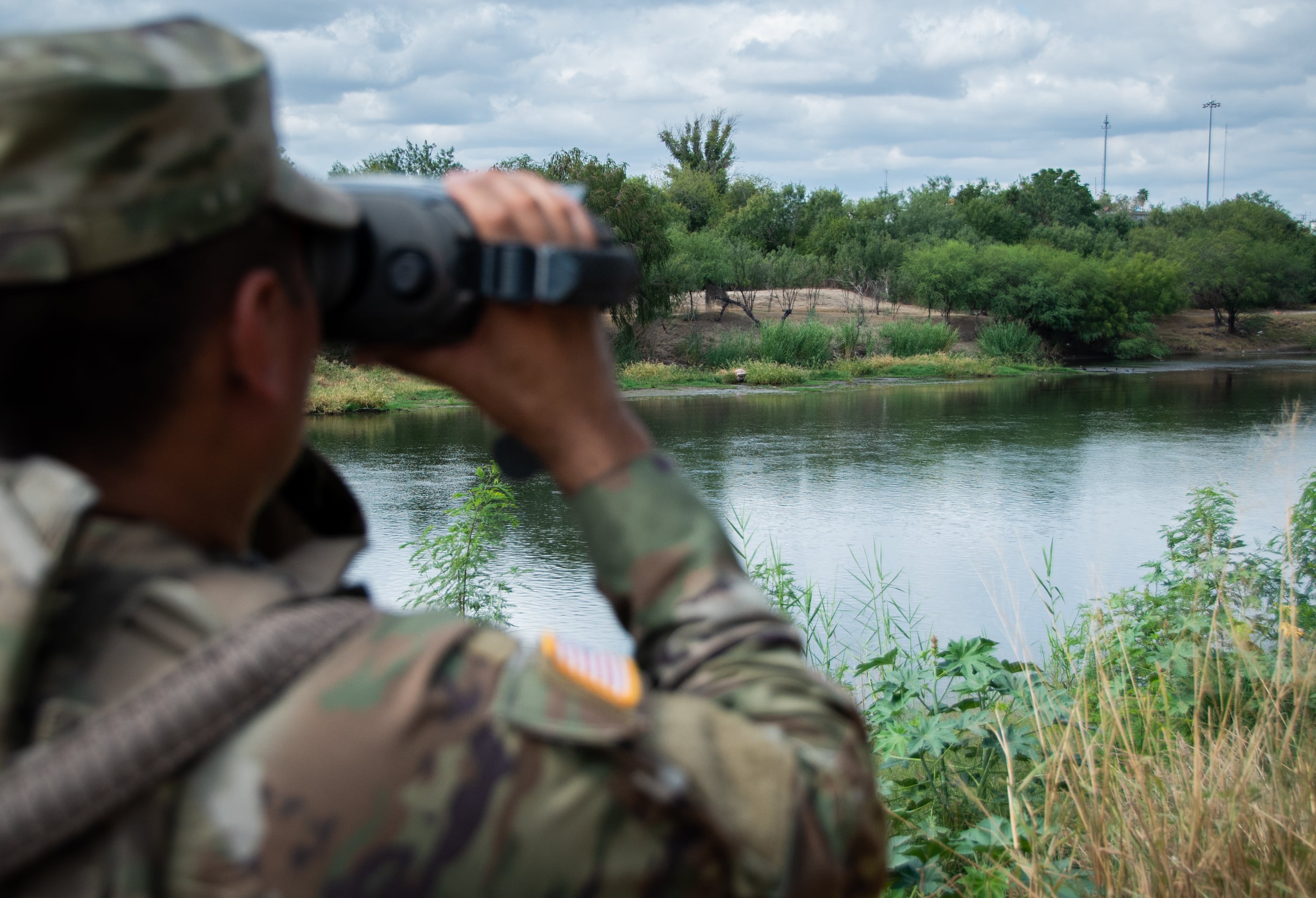Pfc. Joshua R. Cortez was preparing to accept a “lifetime job” with one of the nation’s biggest health insurance companies in late October. But the Texas National Guard had other ideas. The state’s mission to guard its border with Mexico, known as Operation Lone Star, was rapidly expanding and that meant involuntary activations were necessary to meet Gov. Greg Abbott’s troop quotas.
Cortez was one of the soldiers tapped to go on state active duty orders — with no idea how long the mission would last.
“I’ve been waiting for this job and I’m on my way to getting hired,” the 21-year-old mechanic wrote in his request for a hardship release from the mission. “I missed my first opportunity in September when I had to go on the flood mission in Louisiana. … I can not miss this opportunity because it is my last opportunity for this lifetime job.”
Cortez’s company commander recommended approval. But his battalion commander and brigade commander, Col. Robert Crockem of the 176th Engineer Brigade, disapproved, writing, “Soldier can deploy. If offered a job, then Soldier can be given time for training.”
Crockem signed the form at 8:19 p.m. on Nov. 4.
Sometime in the next 36 hours, Cortez drove to a parking lot in northwest San Antonio and shot himself in the head. First responders found him at 7:40 a.m. on Nov. 6.
Cortez and three other soldiers tied to Operation Lone Star have died by suspected suicide in the past two months, according to family members, Guard troops currently on the mission and official documents obtained by Army Times.
- Sgt. Jose L. De Hoyos was found dead in Laredo, Texas, on Oct. 26. He was a member of the 949th Brigade Support Battalion’s headquarters company.
- Cortez died overnight Nov. 6.
- 1st Sgt. John “Kenny” Crutcher died Nov. 12, as time ran out on his temporary hardship waiver. He was the top NCO for B Company, 3rd Battalion, 144th Infantry.
- 1st Lt. Charles Williams, a platoon leader in Crutcher’s company, died at home overnight Dec. 17 while on pass.
The string of suicides raises urgent questions about the mission’s conditions and purpose, as well as the way it’s organized and manned through indefinite involuntary call-ups, according to the Texas Army National Guard’s former top enlisted soldier. Operation Lone Star is a separate mission from the federally controlled National Guard task force on the U.S.-Mexico border, which was the subject of a previous Army Times investigation.
RELATED
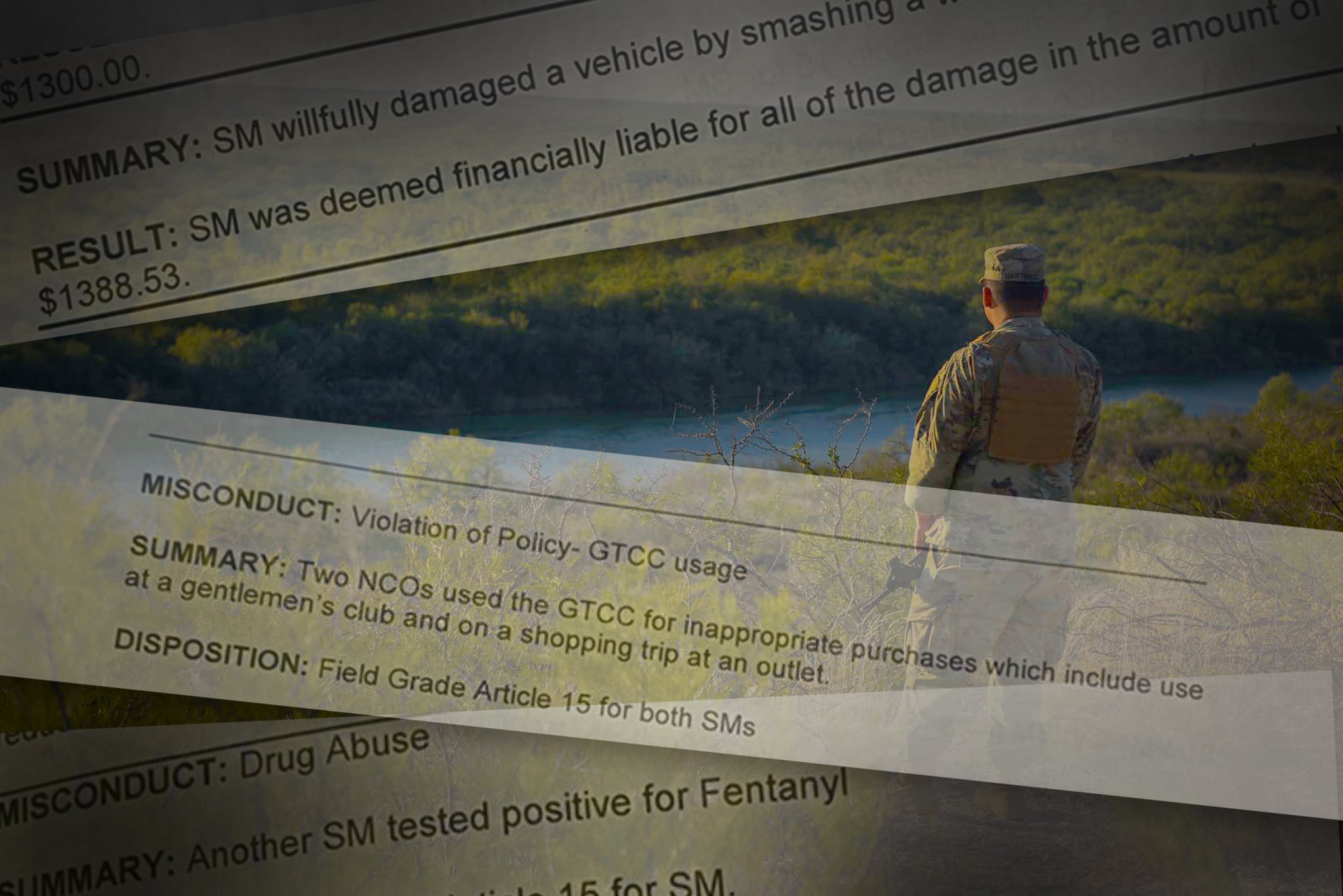
Retired Command Sgt. Maj. Jason Featherston, who was the Texas Army National Guard’s senior enlisted leader from May 2020 until retiring Nov. 30, detailed many of the issues plaguing the units, including Guardsmen’s complaints about a seeming lack of purpose in the mission, in a series of interviews.
“The [Texas Military Department]’s leadership has lost focus on what matters most, and that’s the soldier,” he said. “Their inability to focus on the individual soldiers’ needs has cost several lives, and until they [focus], more tragedies will continue to happen.”
Army Times reached an unnamed Texas Military Department spokesperson via email. The department’s public affairs staff typically does not speak on the record, unlike other elements across the National Guard, and obscures their identities via a group email address.
The spokesperson cautioned, “some of these [deaths] are still part of an open investigation” pending a final cause of death. But all four deaths reportedly occurred via self-inflicted gunshot wounds, according to official documents and sources familiar with the deaths.
“The loss of any service member is a tragedy and mitigating loss through enforcing safety protocols and ensuring resources that promote the total health of the force is something the Texas Military Department takes seriously,” the spokesperson added. They pointed to the organization’s 24-hour confidential counseling lines for soldiers and commanders, in addition to their “large team of independently licensed therapists” that offer services free of charge to all department personnel.
“In addition to the aforementioned resources, there is a behavioral health team assigned to Operation Lone Star with members in each region our task force supports,” the spokesperson said. “The OLS behavioral health team practices proactive, face-to-face outreach through education on self-care, crisis mitigation, and resources available.”
Critics of the mission have claimed that its rapid expansion has been motivated by politics. Abbott, the state’s governor, faces a stiff primary challenge in March from conservative firebrand Allen West, a former Army officer who was forced to retire after torturing an Iraqi detainee in 2003.
West, a former Florida congressman who was elected chairman of the Texas Republican Party in July 2020, made securing the U.S.–Mexico border a primary element of his platform. He resigned from the post in June 2021, announcing his candidacy for governor a month later.
Featherston described the mission’s political motives as “common knowledge around the office.” He said the morale of guardsmen sent to Texas’ border began deteriorating when the mission expanded from a small, volunteer-driven effort during the spring and summer — when only 1,000 soldiers were on mission — to an involuntary assignment.
On Sept. 20, Abbott ordered another 1,500 troops activated, according to planning documents. Soon after, on Oct. 7, Abbott activated an additional 2,500 Guard members for the operation, raising the total to 5,000.
As of the most recent manpower adjustments, there are now around 10,000 Texas Military Department personnel supporting Operation Lone Star, according to a November operations order. Of that number, 6,500 are along the border and 3,500 are supporting the mission from other areas of the state.
What’s going on out there
The increased demand for troops on the border meant that the department had to resort to involuntarily activating entire units from the Texas National Guard and mobilizing members of the Texas State Guard.
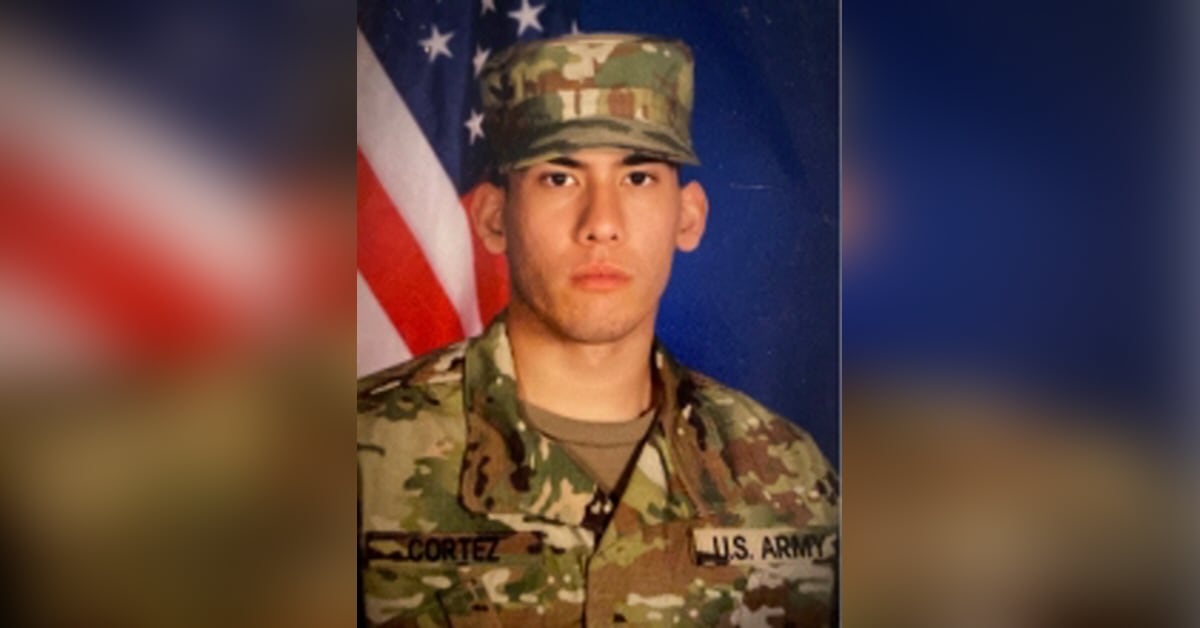
With the September and October activations, units received less than two weeks’ notice to report to the border. One soldier, who spoke on condition of anonymity, told Army Times that his unit had only four days’ official notice.
“Soldiers don’t have time to prepare [for] being away from home” when they receive such little notice, said Featherston. For most federal deployments, Guard troops receive several months’ notice and are carefully walked through a mobilization process that helps them settle their civilian affairs.
For Operation Lone Star, the process was rushed and left many soldiers still trying to resolve issues at home while at the border.
Meanwhile, after the Texas legislature demanded a budget cut, the Texas Guard massively slashed its tuition assistance benefit to balance its books, leaving many troops stranded without the reimbursement payments they’d been counting on for the fall semester, which was already underway.
RELATED
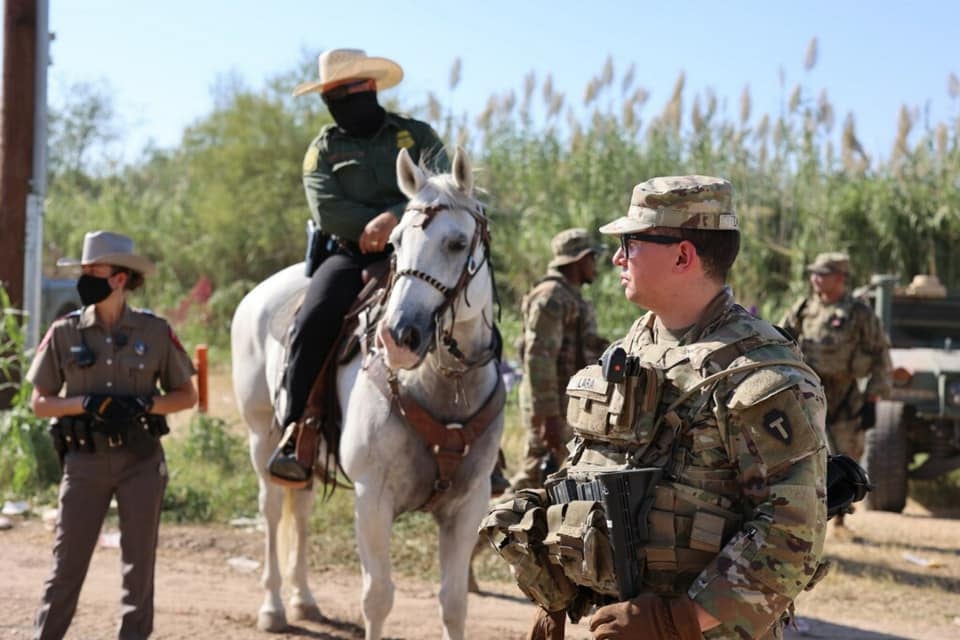
That stress was compounded by widespread pay issues as the state’s human resources system struggled to keep up with the sudden payroll increase. When reached by Army Times in November, Texas Military Department spokesperson Maj. Martha Nigrelle acknowledged the issues and attributed it to “a lag with initial processing” from onboarding the troops as temporary state employees for their time on state active duty.
The state has mostly resolved the issue of soldiers not getting paid, a staff officer from the mission said, but two soldiers complained to Army Times that their paychecks are for different amounts each pay period and that they don’t receive paystubs to review for discrepancies.
Hardship requests
Although the department “is aware there may be hardship situations for some service members and are reviewing these on a case-by-case basis,” Nigrelle said, many troops who asked to not go on the mission were sent to the border while their requests were under review.
Because the state needed troops so badly, the deputy commanding generals of the 36th Infantry Division eventually became the approval authority for hardship requests, rather than local commanders.
“[Senior leaders] ended up requiring all battalion commanders across the [division] have a call with one of the deputy [commanding generals] and explain, by name” which soldiers weren’t available for Operation Lone Star, a staff officer said.
The department spokesperson confirmed that hardship requests and policies are managed at the “major subordinate command level,” which includes the 36th Infantry Division. They were unable to provide data on how many requests have been processed or approved.
“The agency-wide policy for hardship requests is currently under review,” the spokesperson added.
Many hardship requests were granted on condition that the servicemember would deploy within a set timeframe, according to the staff officer.
That’s what happened with Crutcher, the infantry first sergeant who died by suicide in November, his wife, Heather Seymour, said.
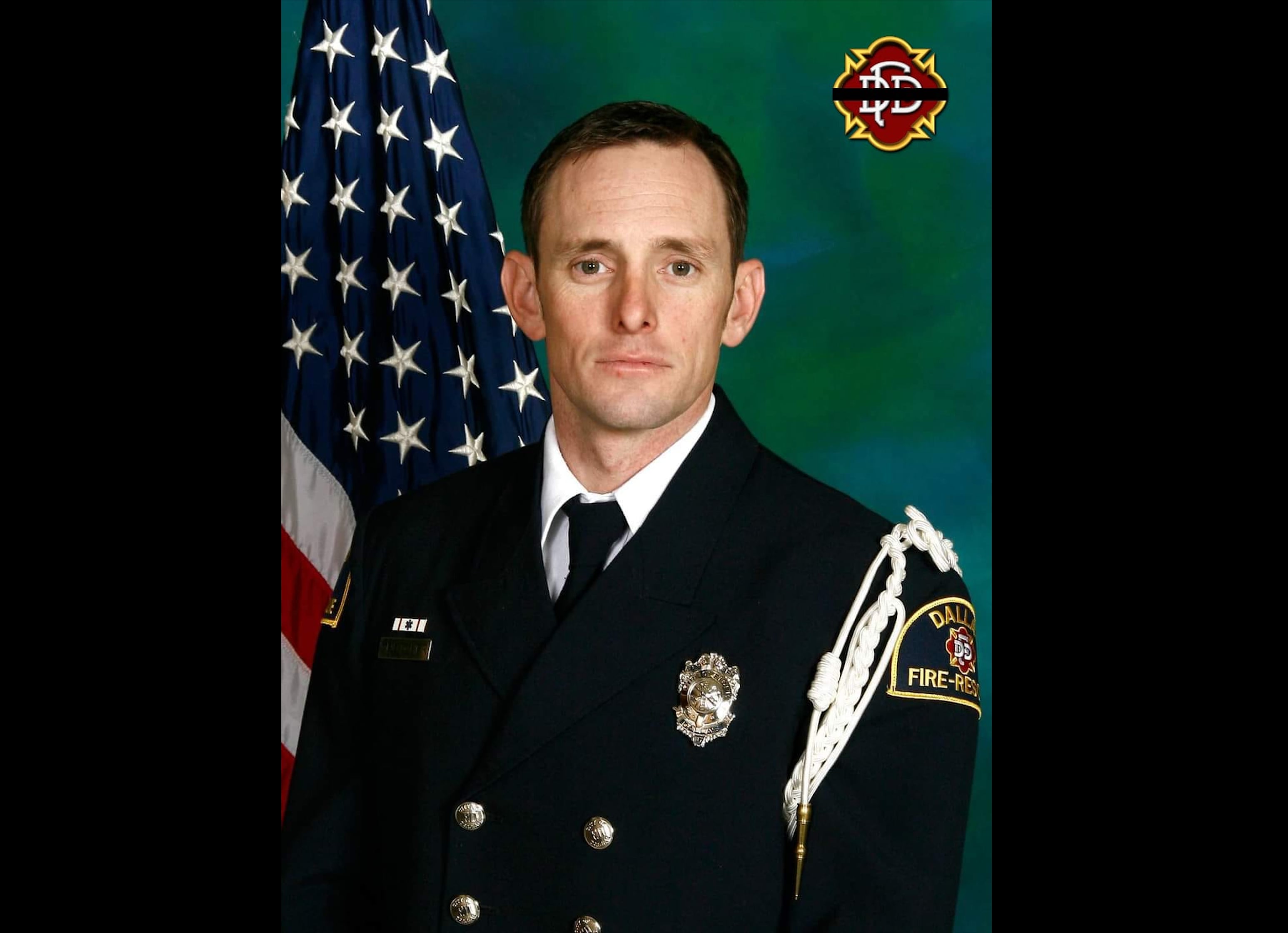
Crutcher asked for and received a temporary hardship accommodation in September after his wife had emergency surgery that left her unable to assist in caring for her disabled brother, David.
“I am the sole provider in the home which facilitates daily care for a wheelchair-bound adult special needs family member,” he wrote in his memo. “Currently we are seeking assistance from the State government however, we have been placed on a waiting list for an undetermined timeframe.”
That earned him a temporary reprieve, Seymour said. But his mind was on the border with his soldiers, and he received his promotion to first sergeant in October.
“He was determined to stay home and help with my daughter and brother until I was able to lift and move heavy things,” she said via text message. “He was in contact with his joes constantly and trying to address their problems remotely.”
She doesn’t know when exactly his temporary hardship was set to expire, saying she thought “he was off this mission and in for next year.”
But an unknown number of soldiers have had their requests denied, including Cortez. And commands have received orders to pursue arrest warrants and criminal charges under the Texas Code of Military Justice for servicemembers who don’t report, the staff officer said.
Living conditions and mental health
Out on the mission, some troops are chafing at their living conditions and what they perceive as a lack of purpose.
“They’re not doing shit on the border,” Featherston said, directly contradicting Abbott and Texas Military Department officials who have said the troops are making a marked difference in security.
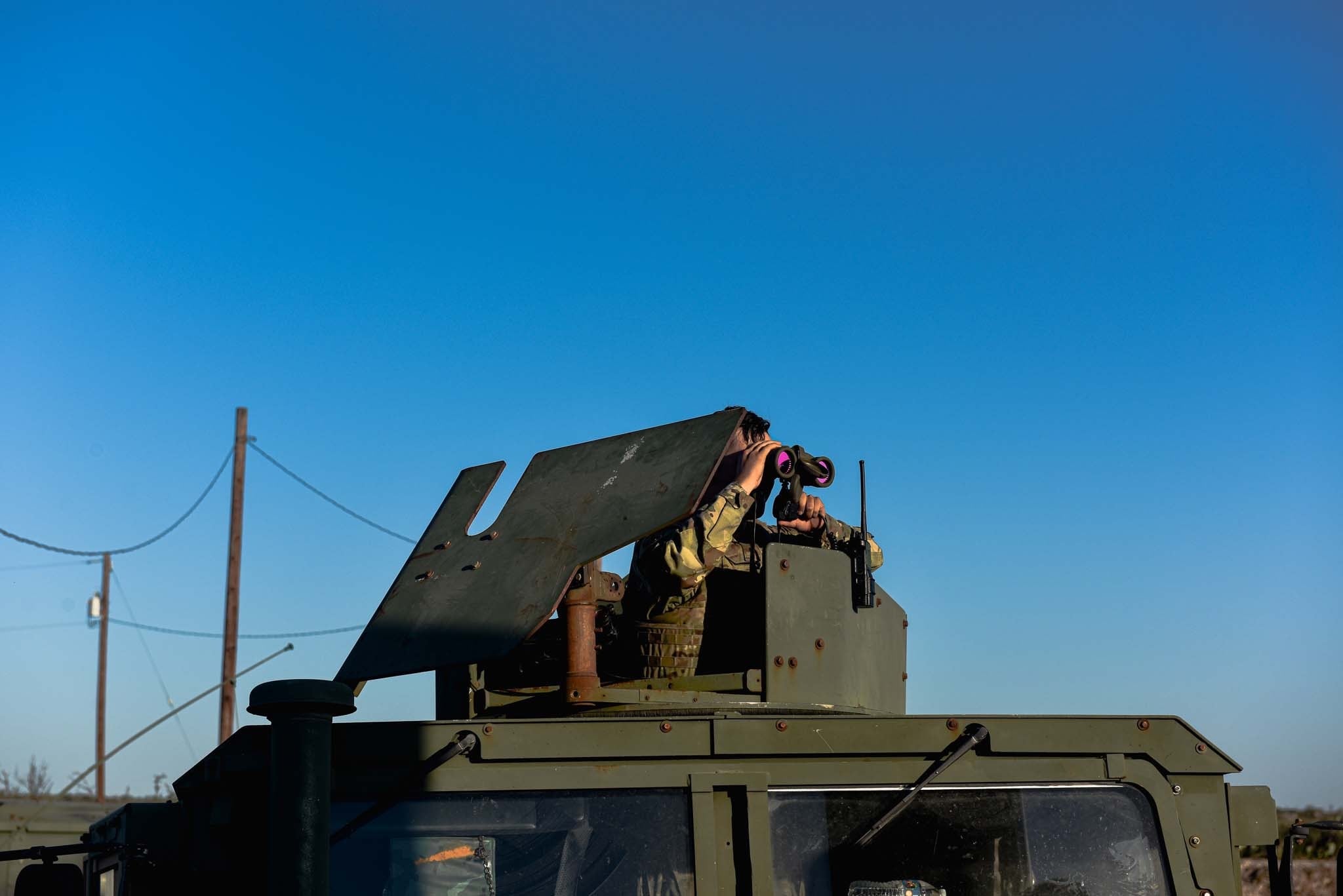
According to press releases from the TMD and Texas Public Department Safety, Guard troops have been helping to build border barriers, man lookout posts, and in some cases, even arrest migrants. The goal is to “combat human and drug trafficking into Texas,” Nigrelle said.
At the mission’s heart is an agreement between the state’s Public Safety Department and more than 100 private landowners to press criminal trespass charges against migrants. That led to a surge of migrant prosecutions in the state courts. Now the American Civil Liberties Union is asking the federal Department of Justice to intervene due to alleged civil rights violations for the migrants.
But Army Times struggled to find evidence of widespread arrests directly conducted by Texas National Guard personnel beyond a handful of photographs shared by Abbott and Texas officials online.
One junior soldier assigned to the observation posts said, “[We just] sleep in a humvee.”
“I have not heard any confirmed report of any NG soldier being directly involved with law enforcement operations at the border,” the staff officer said. “I’ve seen the PR releases.”
When they’re not on duty, many of the troops are living in hotel rooms or in truck trailers converted to be squad barracks bays.
“Current leadership is focused on pleasing a governor vs. soldier safety, [meanwhile there’s] these freaking sleeping trailers that the soldiers are in,” Featherston said.
Many of the Guardsmen have their own personal firearms in the trailers, too, because Texas is a state with strong Second Amendment protections — including a “constitutional carry” law signed this summer. Guard troops in a state active duty status there are considered state employees and cannot be ordered to not carry their own weapons.
Amid a sea of personal weapons, in addition to official duty weapons with live ammunition, some are concerned a suicidal ideation crisis is brewing — and they’re worried that the death toll will continue to mount unless Texas leaders take immediate action.
One junior soldier on the border said a soldier in his platoon publicly declared his suicidal intent earlier this month. Officials confiscated his personal weapons, but within 24 hours he was handed his rifle and live ammo and sent back out on mission.
“I don’t think suicidal thoughts are something you can sleep off,” the junior soldier said.
A staff NCO on the mission said that the state’s mental health efforts are purely “reactionary in nature … and senior leaders are just going through the motions. … It feels robotic and canned.” Featherston agreed, saying “it seems like there’s just lip service” when it comes to suicide and mental health support.
The staff officer, though, pointed to a broader trend of discontent.
“TMD is approaching a breaking point due, in large part, to a failure of leadership,” he said. “Many of us believe that [Operation Lone Star] will be that final straw.”
If you or a loved one is experiencing thoughts of self-harm or suicide, you can confidentially seek assistance via the Military/Veterans Crisis Line at 800-273-8255, via text at 838255 or chat at http://VeteransCrisisLine.net.
Davis Winkie covers the Army for Military Times. He studied history at Vanderbilt and UNC-Chapel Hill, and served five years in the Army Guard. His investigations earned the Society of Professional Journalists' 2023 Sunshine Award and consecutive Military Reporters and Editors honors, among others. Davis was also a 2022 Livingston Awards finalist.
